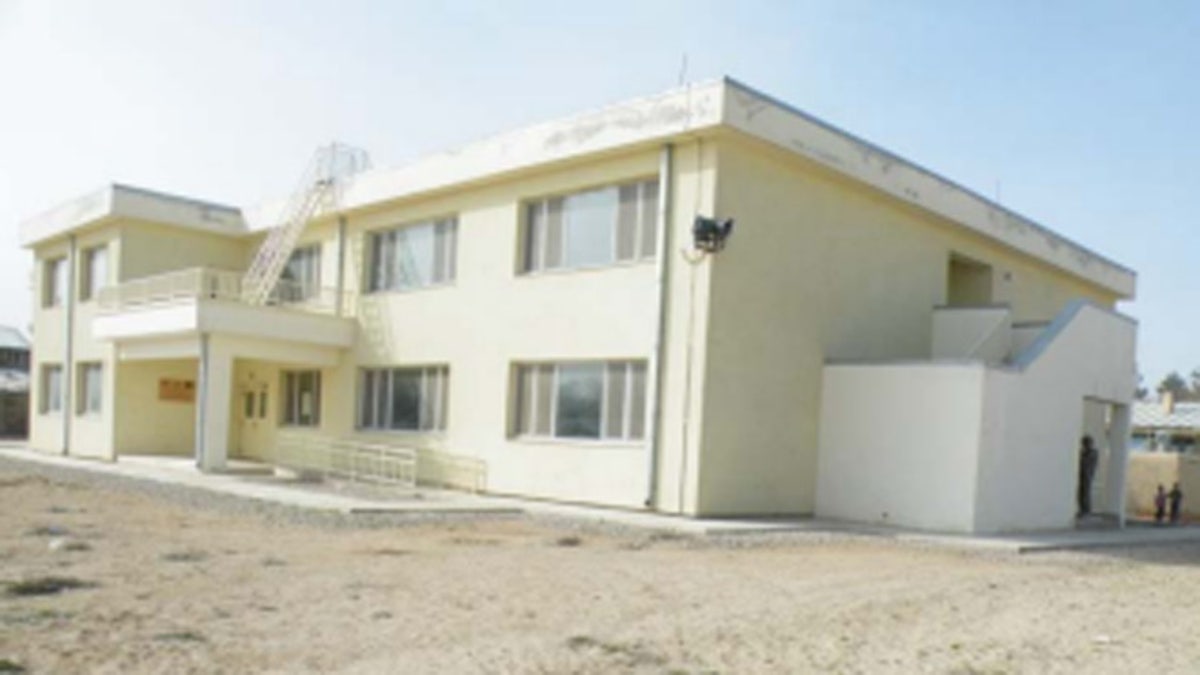
Balkh Education Facility has at times been occupied by students a faculty even though the building was deemed unsafe. (SIGAR)
A school being built in Afghanistan with foreign contractors and funds from American taxpayers has become a money pit that is not even safe for students, a U.S. government watchdog said.
The Mazar-e-Sharif school in the northern Afghanistan region of Balkh, one of 16 schools built in the war-torn nation under a U.S. Agency for International Development plan, has been deemed structurally unsafe, according to Special Inspector General for Afghanistan Reconstruction John Sopko. But the faculty and students assigned to the school are so frustrated that they had been holding class there, anyway, according to Sopko's report, which was released Wednesday.
After five years of construction, the school is still not completed and will require multiple repairs before it can be transferred to Afghan authorities, a report from the Special Inspector General for Afghanistan Reconstruction's office said.
Some of the building's problems included leaks, crossing sewer lines and an incomplete electrical system that has numerous deficiencies, the report said. The architecture is so poor that a second floor terrace slopes into a classroom, causing floods whenever it rains, according to the report. The report said critical structural calculations were missing during the audit, which was called "a significant oversight" given the chances of a roof caving in or collapse of the septic tank system. USAID disagreed with the assessment that the roof and septic tank may be structurally unsound.
The investigation was conducted during visits in March and October 2013 and focused the audit on the Mazar-e-Sharif school.
USAID provided about $17.1 million to the Army Corps of Engineers in 2008 to construct 16 facilities across the war-torn country. These facilities followed a standard design that included 10 classrooms, four laboratories and other amenities. The Army Corps of Engineers awarded a $2.9 million contract to an Iraqi company to build three facilities in the area. The Iraqi company was issued 62 deficiency notices involving its poor work, the report said. Two other companies worked on the project and the project is still not complete.
These schools are intended to prepare students to become teachers at the secondary level.
The director of the Balkh facility pointed out that it lacks air conditioning rendering classrooms unusable during summer months, according to the report. USAID officials said they do not consider air conditioning a necessity and will not include the expense.
The agencies are seeking a contractor and hope to complete the project by mid-2014. They have since asked the Afghan Ministry of Higher Education to see to it the building stays vacant until the repairs.
Balkh province is near the Uzbekistan border, has a population of more than 1.1 million people and is divided into 15 districts. On average, only 31 percent of households use safe drinking water, according to the World Food Program.
